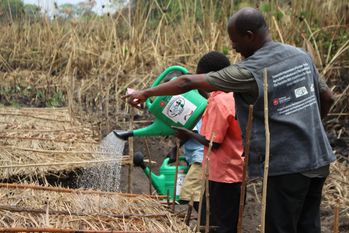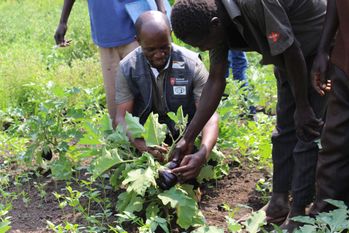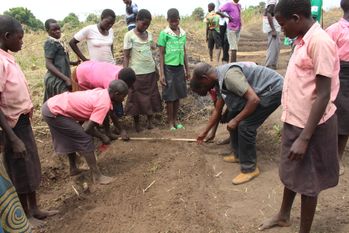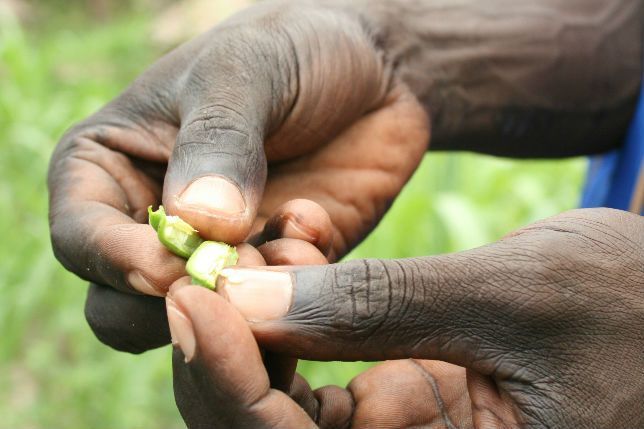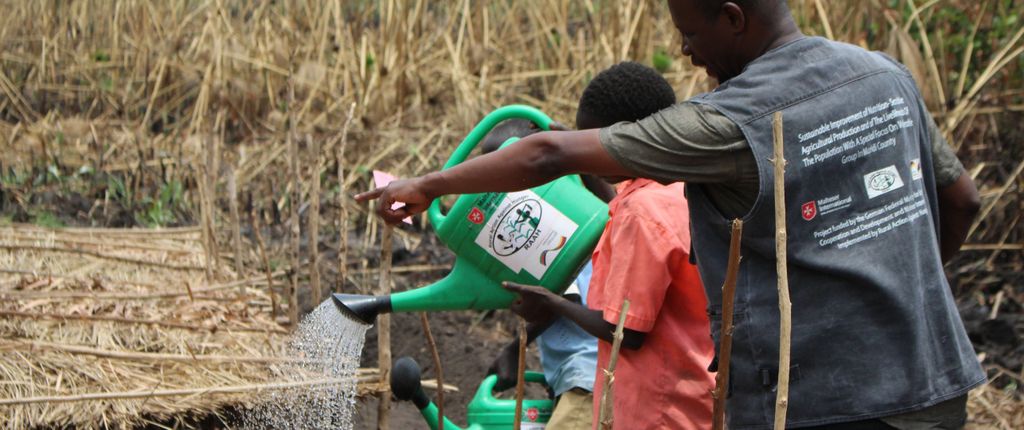
How urban gardening is helping communities in South Sudan take on hunger
One of our strategies to tackle the ongoing issue of food insecurity in South Sudan is to proliferate urban gardens, especially in schools. By teaching young people productive and sustainable methods of cultivating vegetables and fruits, they can become self-reliant in the future, thereby securing a brighter future for themselves.
“The fear gets worse at night,” Mary James says. “I can hardly sleep when I remember my husband. But I need to rest, I am pregnant.” Mary's husband is a soldier currently at the frontline in South Sudan. It has been six months since Mary last saw him. "I really miss him and I am praying every day that he will return to us safe and sound."
The young woman from Maridi, South Sudan has a house full of children whom she looks after all by herself. “My husband and I have three children together,” she says. “But I also take care of my sister-in-law's six children.” Her sister-in-law lives close to the frontlines in Bentiu, northern South Sudan where her husband is also fighting. “She can’t make it down here to be with her children,” says Mary. Maridi is comparatively peaceful, which is why many internally displaced persons have sought refuge and security in the city.
Training in sustainable agriculture
Mary has nine hungry children to feed every day. With the help she receives from our activities in the area, this task becomes a lot easier. "Malteser International has given us seeds and farm tools for growing vegetables and wheat. They also showed us how to get the most out of your land,” she explains. “This has given me some independence and I am able to provide food for the children and myself. Thankfully, I'm also getting extra assistance from the older children in the fields.”
“I couldn't do it on my own,” she says, pointing at her stomach to indicate her pregnancy.
Mary's cornfield is doing very well and her peanuts have shown some promising sprouts. The techniques she has learned has helped her boost her crop production. This way, she is not only able to cater to her family’s needs, but she can also sell her surplus harvest in the local market. “We have also learned how best to store our crops so that we can have enough to eat during months with lower harvest.” To this end, Malteser International supported the construction of small silos and other storage facilities. Mary used to earn her living by selling drinks to soldiers, but her business failed when the soldiers moved to the frontlines. “It was a competitive business, many women were earning money this way. But agriculture is much better for me and my children.”
School gardens and hands-on training for children
School children are also learning about modern and profitable ways of growing crops. Malteser International is helping schools in Maridi develop organic school gardens so that school children can practice what they have learned in class. Successful school gardens can be very vital in providing much-needed food, while improving school children’s understanding of their predominantly agricultural environment.
In working to ensure a sustainable approach towards collective food security in the area, we are also supporting the establishment of farmer’s cooperatives. These cooperatives can help to stabilize food prices which have constantly been on the increase since the outbreak of the civil war in South Sudan. In addition to the skyrocketting food prices, many supply routes have become inaccessible because of the fighting. So the more self-sufficient the population is, the better.
Mary is quite optimistic about her future. “My child will be born in health and will grow up here in safety.”
“All I need now is for my husband, sister-in-law and brother-in-law to return safely from the front. This terrible war has to stop. This is what the children and I pray for every day!"

